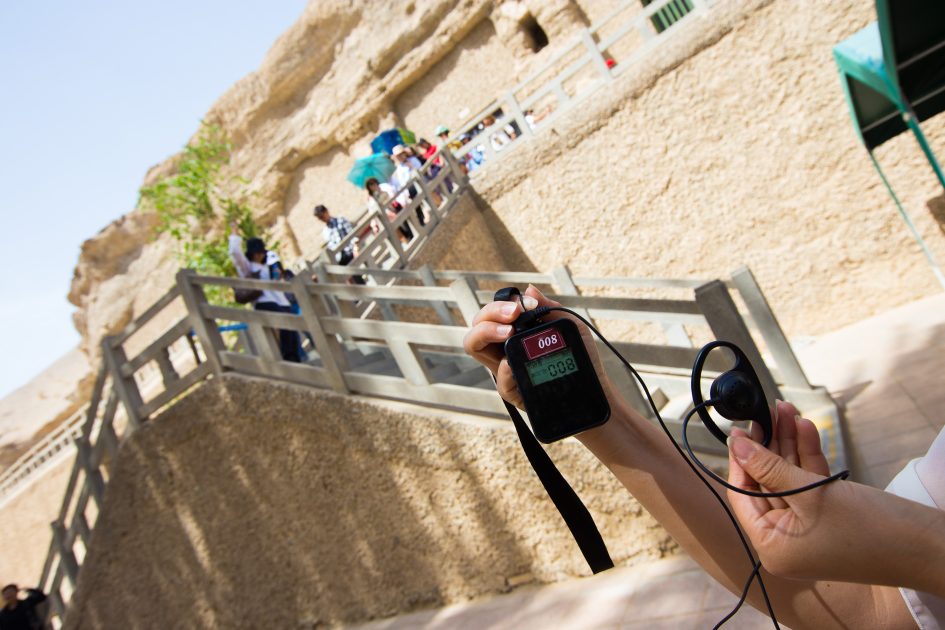Guided tours are a great way for history buffs, holiday makers and, well, tourists to gain a better understanding of the sites that they visit. Tours can take many forms, including explorations around historic ruins, step-by-step walks through museums and galleries or even city–wide regional whistle stop experiences. But, beyond simply acting as a compass for the journey, what does a tour guide do, really? And are these the kind of responsibilities that you feel you could take on in your own career?
This blog will explore typical tour guide job responsibilities, so you can feel confident understanding what it might mean to don audio guide equipment and shepherd people through history.
A tour guide researches, plans and organises
The primary responsibilities of a tour guide are based on being a resource for education and information. That requires lots of research into the area and topic that you’ll be exploring. The last thing you or your guests want is for you to be stumped by a question or section of the tour.
If you’re running a tour for an established organisation, being informed might be enough. However, if you’re running your own tour, planning and organisation include some more important steps, such as:
- Figuring out a route through the site
- Getting all necessary permissions (depending on the location)
- Writing a script for the tour
- Purchasing and prepping all necessary equipment (assistive listening devices, etc.)
A solid base of planning and education is the foundation upon which any good tour is built.
A tour guide provides customer service
What is a tour guide if not the ultimate customer service representative? Nothing! Tours are going to be enjoyed by a wide variety of people with different requirements, and you need to be able to offer a comforting and personalised experience to each and every one of them. This means understanding when it might be time to slightly switch up the vibe, understanding how to answer questions in a guest-friendly manner and generally build a positive rapport with your guidees from beginning to end.
A tour guide handles logistics
It’s not always enough to simply plan an informative itinerary packed with fun facts and relevant anecdotes. Some tours also require guides to be masters of logistics, managing tasks such as:
- Organising public/private transport
- Setting up accommodation
- Managing any necessary tour documents
- Handling any finances
Along with all of these tasks, the tour guide must also do the work necessary to ensure the safety of their attendees. This includes being prepared for all sorts of emergencies, being adept in first aid principles and keeping your head on a swivel in case of unexpected dangers.
Learn more about tour guiding
If you’re interested in learning more about tour guiding as a whole, along with detailed information on the information that can take a tour to the next level, visit Tour Guide Systems. From our store to our resource library, we have everything tour guides need to thrive in any interesting setting.

